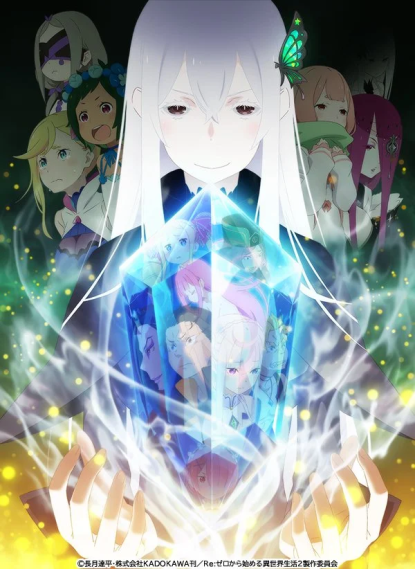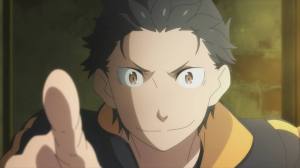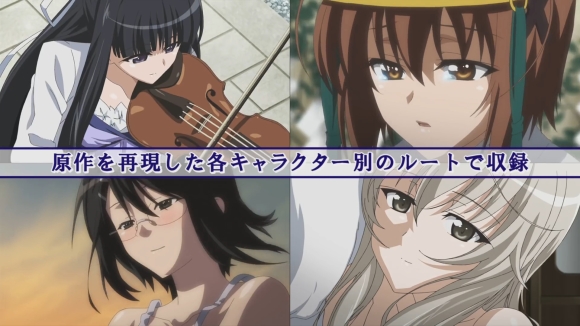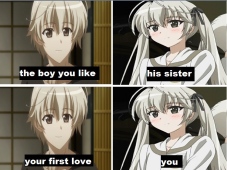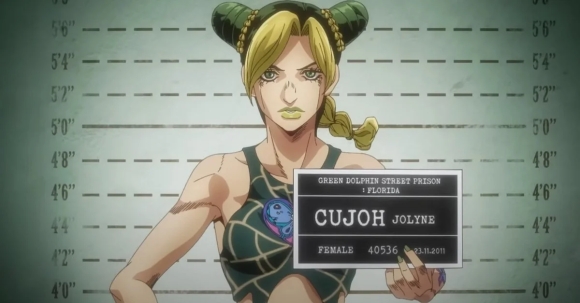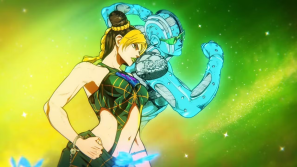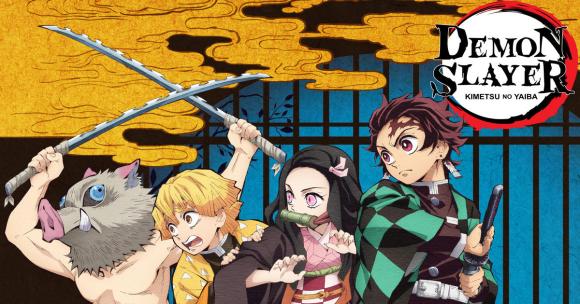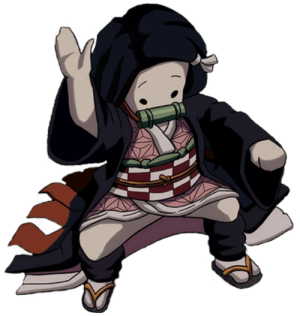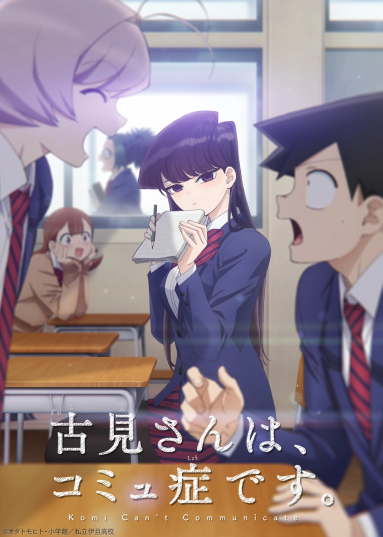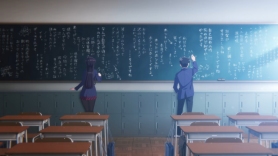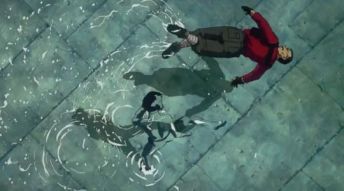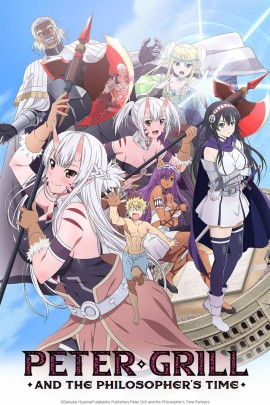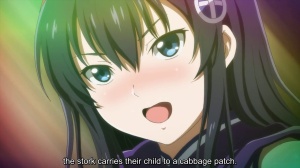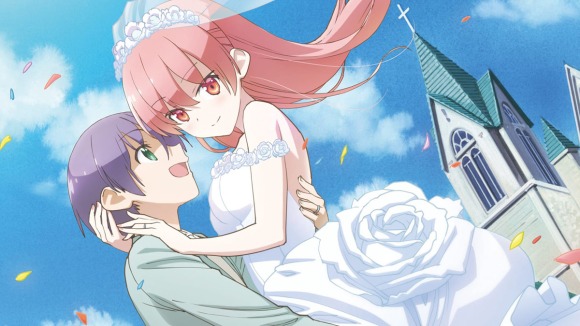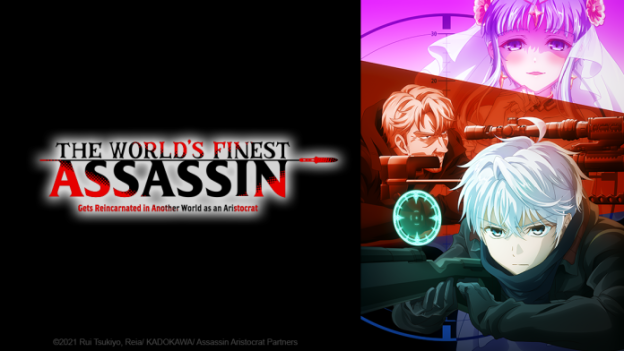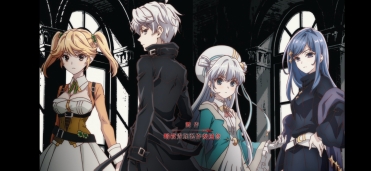Type: Outstanding
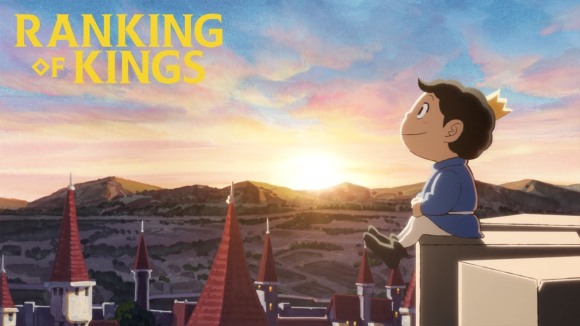
Synopsis: The anime centers around a young prince named Bojji, who is deaf, mute, and physically weak. He is criticized as being an unworthy heir, and mocked regularly by his own subjects. His life is changed when he is finally recognized by someone, a shadow-like creature called Kage. Together, the new best friends work to make Bojji a great future king. However, unbeknownst to them, other actors are working to take over the Kingdom of Bosse for their own mysterious purposes.
Pros: Ranking of Kings, or Ousama Ranking’s biggest strengths are it’s art style and classical story telling. The anime evokes feelings of World Masterpiece Theater, Miyazaki films, and classical fairy tales. Through the simple tale of a little prince trying to becomes a king, author Sōsuke Tōka and Wit Studios have created a timeless piece of fiction. Everything old is new again, helping Ranking of King’s retro style stand out amongst it’s glossier, more frenetic contemporaries. While’s it’s aesthetic charms are it’s most appealing quality, Ranking of King’s characters come as a close second. The show uses the troupe of the “wholesome subversion” to full effect. For some characters, it’s pretty obvious from the beginning that they are meant to surprise you. Bojji’s athletic ability is contrasted by his reputation (as seen at the end of Ep.1), as is Kage’s good nature compared to his design and initial attitude. But for others, learning that a character is actually a good and even caring person puts a smile on your face. Better yet, characters are made three dimensional by being allowed to make mistakes, reflecting on them, and trying to be better. Most of the cast is good at heart, but come in conflict with one another due to differing motivations and opinions.
It’s Hiling, I’m talking about Queen Hiling. Spoiler’s be damned! This is my last review anyway: I love that Queen Hiling is introduced as an “evil-step mother,” only to be revealed as an absolutely loving parent. She was hard on Bojji because he believed he couldn’t handle being heir, and wanted to protect him. But she realized that this was the wrong approach, because it undermined Bojji’s confidence. We see Queen Hiling reflect on this and try a new approach by being more supporting of Bojji, and letting him try new things by himself. Queen Hiling was one of the best portrayal’s I’ve seen of not only step-mothers, but parenting in general. Hiling’s mistakes with her son were out of love, but they were still mistakes. Seeing Hiling trying to improve on her mistakes was the one of the most realistic thing I’ve seen an adult do in anime. If you need any proof about how much she loves her boys, just look up Hiling, Bojji, and Daida’s reunion near the end of the season. And, on a more sentimental note, I damn near cried at the end when Hiling said “Go now, my Bojji.” (Did I really just spend a third of my last review ever talking about parenting in an anime. Wow, it has been 10 years).
I forgot to say, the fight scenes are also AMAZING. Not only Episode 21 (which is astounding), but also Bebin’s first fight, Bojji vs Daida, the struggle against Ouken, just basically every fight in the seasons. Ah, Kage is best boi. I know people say Bojji, but they can share the title. Their friendship was great to watch, especially when you realize that their each other’s first friend. Bebin and his snakes were very cute. So was Dorshe’s loyalty to the queen. The tragedy of the underworld and the Sons of Satun was excellent world building. I love that each kingdom has it’s own backstory and troubles unrelated to the Kingdom of Bosse. And I’m also very intrigued by Ranking of King’s larger world of Gods, Giants, and Demons. Like Bojji and Kage at then end, I’m excited to explore it!
Cons: Yeah, it’s Miranjo. Just, just Miranjo.
Watch it: My highest recommendation (6/5)
MVP: Kage
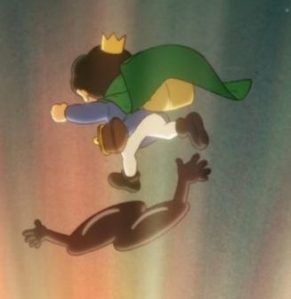
We should all try to be a friend like Kage
Best Episode: Ep. 21 “The Swordsmanship of a King” (the best animated show of the year)
It Was Fun
And that’s all folks. I decided to end my run at the 10 year mark. This was the longest consistent endeavour I’ve ever done in my life. I started this blog as a way to keep my writing skills sharp during my last year of college. But once I started, I kinda couldn’t stop. This blog honestly kept me sane during a low point in my life between college and my career (I’m a teacher, spoilers!). Now as I’ve gotten older and busier, I’m finding less and less time to keep up with anime, even the one’s I like. I told myself that if this ever became a chore, I’d stop. And it kinda stated to become a chore. I’m still going to watch anime and read manga, but I’d also like to explore other stuff. I hear that there’s been some good non-anime tv and movies in the last 10 year (I’m not sure if that’s a rumor of not, but I want to verify to make sure). I actually had a plan to do this big, year long thing with list and essays, but that’s not what this site is. It’s anime review for the busy Gentleman and Lady.
So, for the final time: Hasta lasagna, don’t get any on ya. From the bottom of my heart, thank you for reading. Goodbye.
